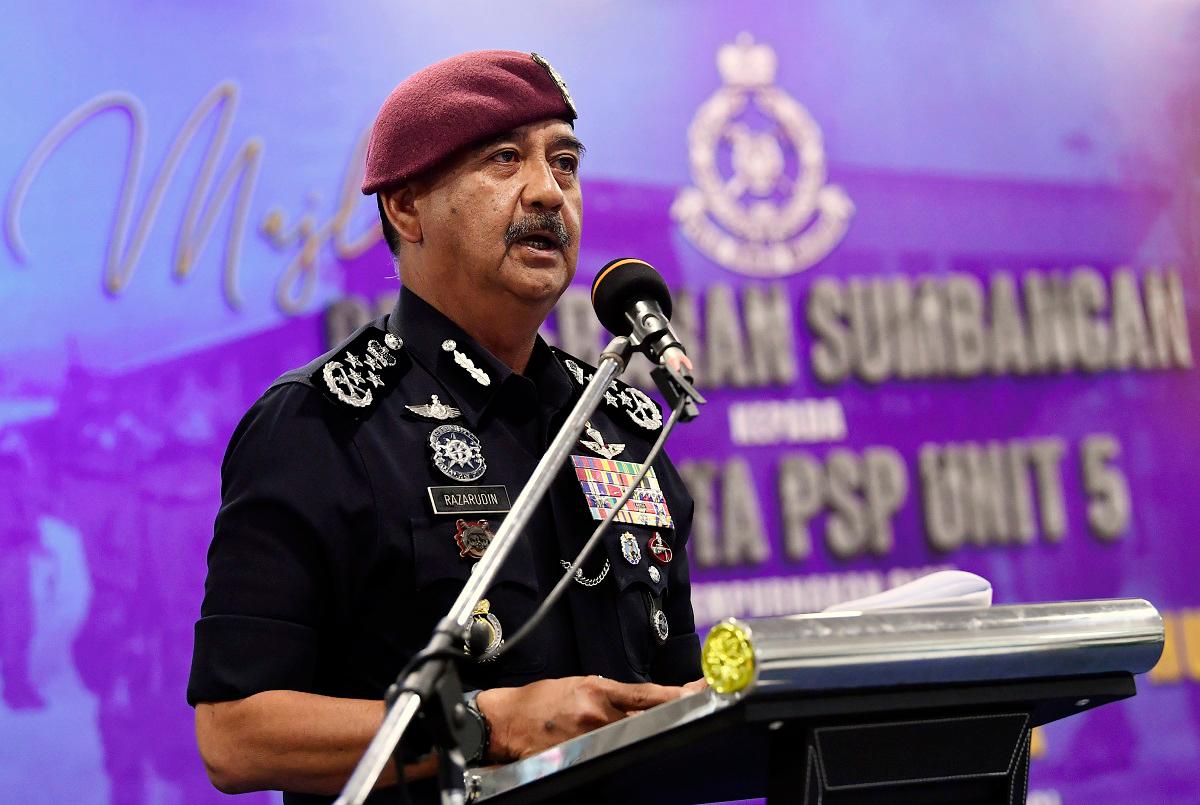KUALA LUMPUR: Every time disaster strikes, journalists stand firm on the frontlines -weathering danger, tension, and chaos with nothing more than a voice recorder, notebook, and microphone.
Their mission: To deliver verified information to the public, even when met with criticism from the online world, the netizens.
But to the nation’s key security agencies, journalists are far more than messengers. They are seen as unsung heroes - brave individuals who choose truth over provocation, facts over sensationalism.
Inspector-General of Police Tan Sri Razarudin Husain described the media as one of the Royal Malaysia Police’s (PDRM) most vital strategic partners, whose ethical and responsible reporting plays a crucial role in maintaining public order.
“PDRM values the media not only as information providers but also as observers capable of recommending improvements that help us remain a trusted team of high integrity,” he told Bernama.
Razaruddin said that the collaboration between law enforcers and the media also aligns with the aspirations of Malaysia MADANI, which upholds inclusivity, compassion, mutual respect, and shared responsibility.
“We hope the synergy and bond that have long existed between the media and the police force will continue to grow stronger, for the sovereignty and peace of our nation,” he said.
Chief of Defence Forces General Tan Sri Mohd Nizam Jaffar echoed these sentiments, describing the journalists as an essential bridge between the armed forces and the public, especially in explaining complex security issues in a holistic and responsible way.
“The roles the journalists play are important in helping us reach the public. They always keep abreast with the developments and can even serve as subject matter experts to ensure that each of their reports delivers meaningful impact,” he said.
He stressed that media-military collaboration must rest on three pillars - a strong rapport, transparency, and consistent communication - to ensure accurate and effective delivery of information to the public.
In facing high-stakes security issues, Mohd Nizam urged journalists to strike a balance between public interest and national security, and to verify every piece of information for its accuracy and impact.
“Every report must be well-grounded. Journalists need to know the line between what can be shared and what must be protected. Some information must remain classified for national safety,” he said.
He also encouraged journalists to deepen their understanding and develop expertise in security matters so that their work carries greater precision and credibility.
Meanwhile, Fire and Rescue Department (JBPM) director-general Datuk Nor Hisham Mohammad described journalists as key strategic partners in disseminating messages about fire safety and rescue operations.
He noted that media cooperation has led to real-world impact, with special reports and documentaries increasing public awareness of fire hazards and preventive measures.
Nor Hisham said JBPM has also been organising engagement initiatives such as ‘JBPM-Media Day’ to give journalists firsthand exposure to procedures for fires, road accidents, and water rescues.
“Journalists are our strategic allies in saving lives and building a more fire risk-aware society,” he said.
In recognition of journalists’ essential role in nation-building, Malaysia celebrates National Journalists’ Day (HAWANA) every May 29. This year’s celebration, slated to be held from June 13 to 16, is expected to draw around 1,000 media professionals from Malaysia and abroad.
The highlight of HAWANA 2025 will take place on June 14 at the World Trade Centre Kuala Lumpur (WTCKL), with Prime Minister Datuk Seri Anwar Ibrahim being the guest of honour.
Organised by the Ministry of Communications and implemented by the Malaysian National News Agency (Bernama), HAWANA features a wide range of events, including a Pantun Festival held on May 31 and a Media Forum co-hosted with the Malaysian Press Institute (MPI) on June 14.









